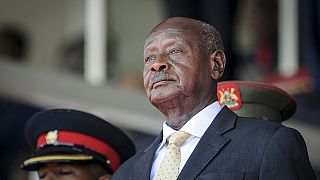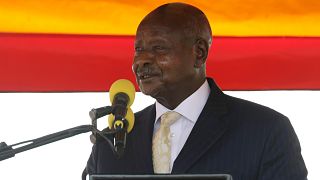Uganda
Uganda’s finance ministry has revised the controversial mobile money taxes, adopting the reduction of the levy from 1% to 0.5%, adding that it will only be levied on withdrawals only and not ‘sending, receiving and depositing’ money as earlier passed by the country’s parliament.
The parliament last month passed the Excise Duty (Amendment) Bill 2018 that introduced a levy of 200 shillings ($0.05) per day for access to a range of online services. Some platforms affected by the tax include Facebook, Twitter, WhatsApp, Google Hangouts, YouTube, Skype, Yahoo Messenger.
Cabinet revises mobile money tax
Following a cabinet meeting held on Monday, the information and ICT minister, Frank Tumwebaze told journalists that government had responded to calls from the public to make the tax ‘fair’.
“Cabinet approved the amendment of the Excise Duty Act …reducing the tax payable on mobile money tax from 1% to 0.5% on withdrawals only,” said the Minister while addressing press at the Uganda Media centre.
I am very pleased that
— Frank K Tumwebaze,MP (FrankTumwebazek) July 17, 2018mofpedU& #Cabinet accepted to reduce the tax frm 1% to 0.5% & to Levy it On Withdrawals ONLY, Meaning that If I send MM & transact digitally e.g to pay utility bills, school fees or use my e-wallet to pay for any other service NO tax. #CashlessEconomy https://t.co/a5hB6xTAQZ
New taxes criticised by Ugandans
The taxes, implemented by telecommunications companies since July 1, have been widely criticised and resisted by Uganda’s youthful population, human rights activists and economic analysts.
The taxes have been legally challenged, and were at the center of protests last week led by legislator, Robert Kyagulanyi, popularly known as Bobi Wine.
ALSO READ: Ugandans challenge social media tax in court, want MPs to rescind the lawThe country’s president, Yoweri Museveni, has since issued several statements defending the levy of a social media tax, but also making concessions on the mobile money tax.
Museveni directed that refunds be made to customers whose deposits had been charged, and also confirmed that the levy should have been 0.5%.
The cabinet’s proposals will be presented to parliament for approval. Museveni’ party enjoys a parliament approval and usually endorses all the government’s proposals.
Gov’t insists on charging social media tax
Critics of the new taxes are likely not to be satisfied with the concessions, considering that government insists on levying the social media tax.
Here are the proposed amendments to the Excise Duty Act passed, supposedly in error.
Sigh! pic.twitter.com/EzlhioU2h0
— Mujuni Raymond (@qataharraymond) 17 juillet 2018
The state finance minister, David Bahati instead explained that cabinet had resolved to make payment of this tax convenient by allowing longer term payments.
“We want to get more options so that you can pay quarterly or annually, in addition to the daily, weekly and monthly subscriptions,” he said.
Currently, Ugandans can pay the $0.05 levy on a daily, weekly and monthly basis in order to access social media sites such as Facebook, Twitter, WhatsApp and others.
.
FrankTumwebazek: When I have not paid my OTT tax I cannot access my WhatsApp,— Uganda Media Centre (@UgandaMediaCent) July 17, 2018
Bahati also said that government has since registered up to ten million users who have paid the social media tax, clarifying that it is not a tax on all internet services.
Uganda has about 23.6 million mobile phone subscribers, 17 million of whom use the internet, according to the state-run Uganda Communications Commission.












01:04
Uganda secretly sends hundreds of troops to DR Congo - UN experts
01:00
Pix of the Day: July 3, 2025
01:45
From Uganda to NYC: Zohran Mamdani's rise in American politics
01:22
Ugandan-born Zohran Mamdani declares victory in New York Democratic mayoral primary
Go to video
US resumes visas for foreign students but demands access to social media accounts
01:00
US president Trump renews extension for TikTok to avoid nationwide ban